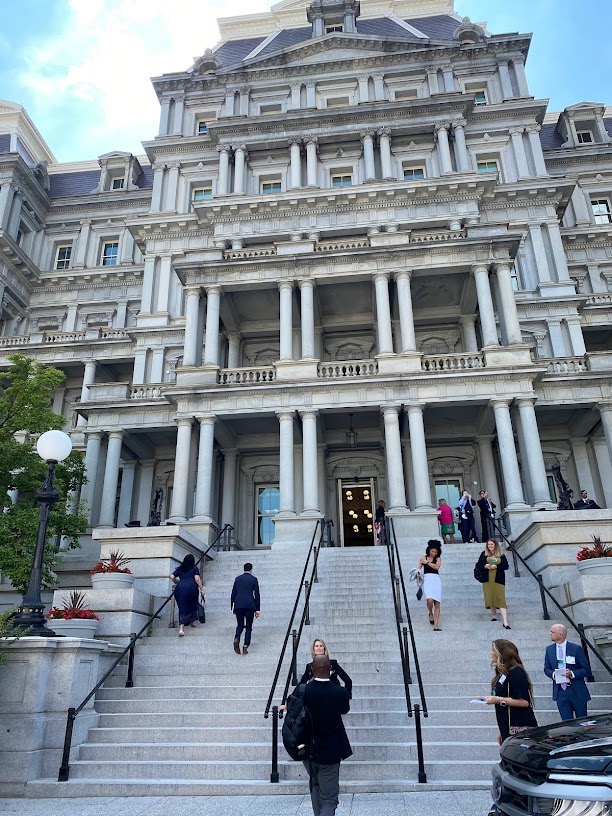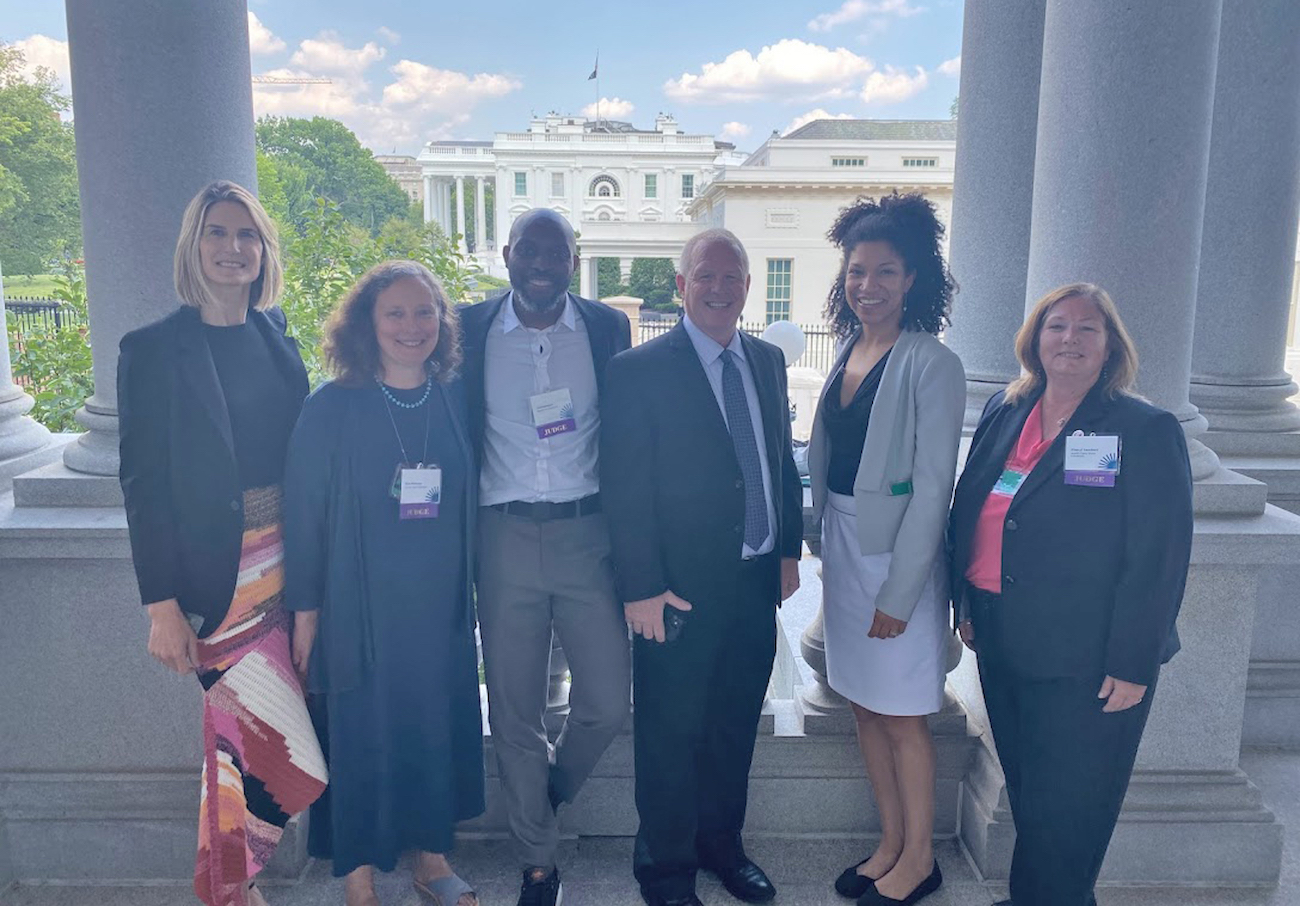APSU professor judges Rural Tech Project at White House
By: Megan Simpson July 19, 2023
WASHINGTON, D.C. – Dr. Cheryl Lambert, an associate professor and the coordinator of the Center for Rural Education at Austin Peay State University, visited the White House on July 12 as part of her judging responsibilities for the Rural Tech Project.
The Rural Tech Project, funded through the U.S. Department of Education, is meant to connect innovative educators with the means to implement technology education programs that might typically be out of reach. These educational projects bring technology-focused education into rural classrooms at a time when this competency is increasingly important in the workforce. Lambert, a department chair in the Eriksson College of Education, was personally invited by program administrators to serve as a judge.
“Technology education programs are essential to rural school districts because of the impact of technology on our daily lives,” Lambert said. “Teachers use technology every day in the classroom. As we train teachers for the work in rural schools, it is our responsibility to train them to use technology in the classroom. Rural school districts have the responsibility to prepare students for the ever-evolving technological workforce.”
Lambert joined a panel of judges to evaluate five finalists for the $100,000 Rural Tech Project prize. Other judges included K-12 education, nonprofit and industry experts with ties to technology education, workforce development and technological innovation. The finalists showcased the following technology education programs:
- iLead Academy, Carrollton, Kentucky – Virtual Computer Science Career Academy
- Louisa County Public Schools, Mineral, Virginia – Cybersecurity Certification
- Premont Independent School District, Premont, Texas – Rural Schools Innovation Zone
- Ravenna Public Schools, Ravenna, Michigan – Agricultural Technology Program
- Woodlake High School, Woodlake, California – Woodlake Aviation Pathway
These competency-based distance learning programs were selected as the best from 63 submitted proposals from rural high schools and local educational agencies from 34 states. Phase 1 judging of the Rural Tech Project occurred in Fall 2020, with each of the five finalists receiving $100,000. Each team received virtual resources, as well as local support and mentorship, to launch their programs for a two-year period.
 During the Phase 2 finalist showcase in the Indian Treaty Room at the Eisenhower Executive
Office Building on the White House grounds, each team presented their program and
outcomes from the implementation. The grand prize winner will be announced in Fall
2023.
During the Phase 2 finalist showcase in the Indian Treaty Room at the Eisenhower Executive
Office Building on the White House grounds, each team presented their program and
outcomes from the implementation. The grand prize winner will be announced in Fall
2023.
Lambert said she enjoyed the experience in the marble-walled room that has served as a backdrop to many historic presidential moments, and she was thoroughly impressed by the presentations, which ranged from computer science data literacy to aviation career technologies.
“The presentations demonstrated each project’s implementation goals, their methods of implementation, the successes they experienced, the challenges they overcame, the partners they worked with, the credentials and credits earned by the students and their continuous improvement plans,” Lambert said. “I was impressed by the way the rural school finalists met and successfully overcame a variety of challenges during the changing educational landscape of a national pandemic to deliver amazing outcomes for student success in the field of technology education.”
Center for Rural Education
Lambert is an advocate for rural schools, as she spent several years working in West Tennessee schools as an elementary school teacher, instructional coach, special education director and secondary instructional supervisor. In addition to her personal experience, she has researched and published several articles on rural education.
The Center for Rural Education, launched in 2018, is designed to provide support and resources to rural school districts. The center employs Rural Education Scholars, students focused on research and specialized initiatives for rural schools. These scholars plan to teach in rural schools upon graduation. The center also provides outreach and training opportunities for rural teachers and students throughout the year, including a Rural Education Conference where educators can exchange best practices and review educational data and trends. APSU’s Eriksson College of Education professors will host presentations for teachers in Houston County and Humphreys County later this month.
“The Center for Rural Education regularly offers personnel and resources to rural school districts during the summer for teachers and administrators to engage in meaningful professional development opportunities for the purpose of enhancing teaching skills in STEM and in other requested content areas, such as literacy,” Lambert said.
For more about the Center for Rural Education and its initiatives, visit the website or email Lambert at lambertc@apsu.edu.
